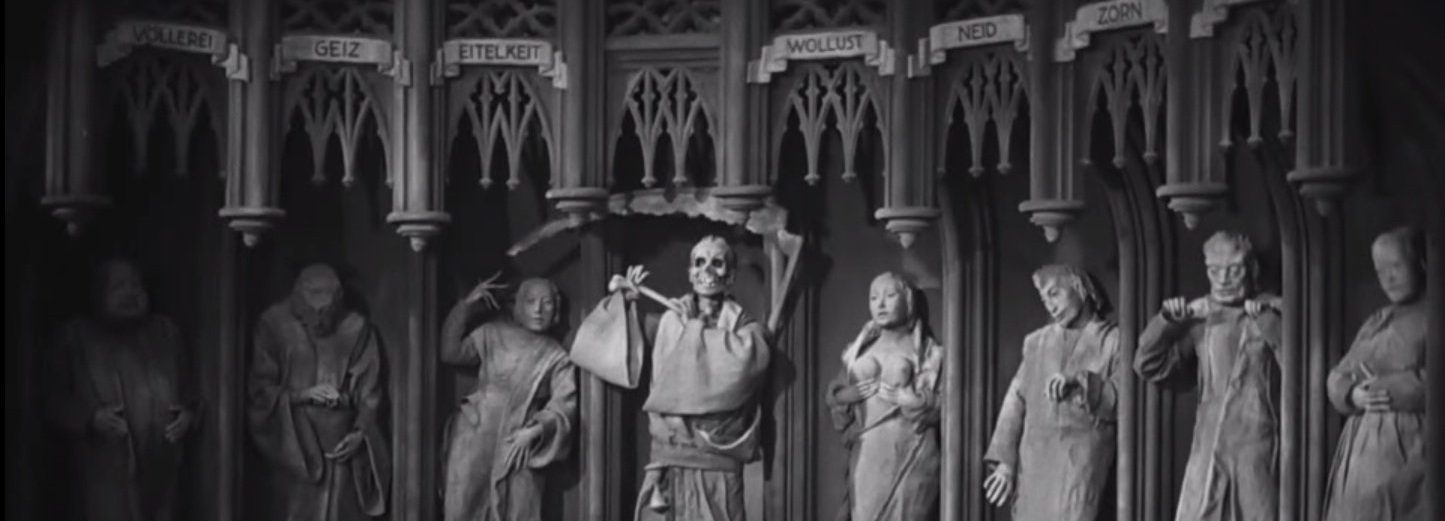In this Post I’ll be reviewing part of “The Psychological Significance of Science Fiction,” an article written by David F. McMahon, M.D., published in The Psychoanalytic Review journal in 19891. Unfortunately, due to copyright restrictions, I do not believe I can upload the article to this site. If you’d like a paper copy, I can provide that. I’ll review the article in more depth when I expand my thoughts on this Post and add it to the Psychology and SF Menu.
So, if you’re here because you’re anxious about the implications of Oedipal relations and wish to briefly note their existence– only to then quickly negate them, here’s what McMahon writes about Star Wars and Oedipus:
“Preoedipal and oedipal psychology appear extensively in science ficiton… The oedipal theme emerges three decades later in the Star Wars trilogy… Martin Miller and Robert Sprich (1981) have proposed that Star Wars delineates the outcome of two different oedipal struggles. In the first, that of the protagonist Luke Skywalker,
we see a clear positive resolution of the Oedipus Complex. He [Luke] learns how to use the Force. He rescues the damsel in distress and performs a feat of great courage, one that demonstrates his superior abilities (my emphasis).
He vanquishes Darth Vader [his father], who had [also] apparently destroyed Skywalker’s father. In… The Empire Strikes Back and Return of the Jedi, the oedipal struggle continues to be developed, with the inclusion of a symbolic castration in the severing of Skywalker’s hand” (my emphasis).
Why is this significant? I understand McMahon’s point to be such: the Star Wars series was so captivating to society because people identified with the oedipal nature of the saga. In essence, “[t]his oedipal science fiction thriller appealed to a teenage audience, which identified with the protagonist and the heroine in this archetypal human drama.”
If you’re more open to classical psychoanalysis, see the expansion of this Post (not yet published). If you’re eager to indulge but don’t have the time, here’s some of the interesting questions and claims McMahon poses in his article:
Questions
- “What in our late-twentieth-century Western culture explains the psychological magnetism of such a film [Star Wars]?”
- “What explains the plethora of college courses examining science fiction literature as a serious form of artistic expression?”
- “Why do people have trouble understanding changes in our world society?”
Claims
- “Science fiction themes correlate well with the historical phase in which the works are produced.”
- “Bernabeu (1957) concluded in ‘Science Fiction: A New Mythos’: ‘science fiction represents much more primitive, infantile fantasies of defense’ than other literary genres… [Bernabeu] observed that the literary devices of science fiction symbolize anxieties and concerns of a very early stage in life, noting that ‘Problems of living in space, of gravity, disturbances in equilibrium, orientation and locomotion, have their ontogenetic equivalents in the infant’s struggles with orientation, equilibrium, and motility… Science fiction represents ‘far greater anxieties and more deeply regressive defenses than those which evoked demigods, devils, and witches of other times.’ “
- “The… film Forbidden Planet utilizes the literary device of a machine which makes real that which one desires, to explore in metaphor the childhood thought processes of omnipotence and magical thinking.”
- Professor Saiber spoke to us in class about Forbidden Planet. You can download the PowerPoint which covered it here (slides 9 and 10).
- “Three possible psychological roles that science fiction literature and cinema may serve are: (1) understanding and adapting to change through exploring possible futures or parallel worls; (2) discovering poetic or philosophical meanings in technological change; and (3) entertainment.”
Source Credibility: I perceive McMahon to be a responsible author. He seems sufficiently knowledgeable about SF; as a backdrop to his arguments he defines SF and “highlight[s] its historical terrain.” He cites many recent authors and writes clearly. He does not offer other viewpoints on the psychological significance of SF.
1 McMahon, D.F. (1989). The Psychological Significance of Science Fiction. Psychoanal. Rev., 76(2):281-295

great posting!